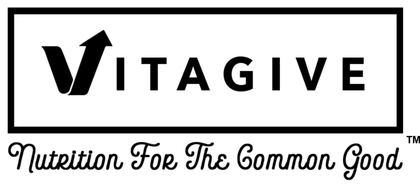Absorption
- According to the Physicians Desk Reference (PDR), a guide to all things prescribed, the contents of both capsules and pills, which make up the majority of multivitamin sales, are only 10 (pills) to 20 (capsules) percent absorbed by the body, while liquid formulas (like Vitagive) are the most absorbable at up to 98 percent! (1)
-
Dr Raimar Löbenberg and his disintegration studies
- According to a study published in the Journal of Pharmacy and Pharmaceutical Sciences, Raimar Löbenberg, Ph.D., of the University of Alberta states, “Active ingredients [micronutrients] can only be absorbed if they are released into solution from the dosage form. Disintegration is the first step in this process . . . if a mineral has to be absorbed within an absorption window and the dosage form [i.e. pill or capsule] does not release its content in a timely manner, then the therapy might be compromised or fail. An extended release dosage form on the other hand only releases parts of its total content at the absorption window like the duodenum and releases most of its dose in the jejunum, ileum and colon. This might cause a therapeutic failure due to insufficient absorption of some minerals or vitamins in deeper segments of the gut.”
- Dr. Löbenberg went so far as to examine forty-nine well-known commercially available multivitamins that were in both tablet (pill) and capsule form to determine if they could release their contained micronutrients within a twenty-minute time period—the time necessary for potential absorption. The results showed that out of the forty-nine multivitamins studied twenty-five (or 51 percent) did not disintegrate within the allotted 20-minute window (21 of the 39 tablets or 54% and 4 out of the 10 capsules or 40%)
- The worst performers were (see here) Kirkland Signature formula (Cosco Brand), Ultimate One for Men, Trophic, Sisu Only One, Super Swiss One, and GNC Mega Man – all of which failed to disintegrate at all. The Thorne Research Multi-encap was evaluated and failed to fully disintegrate within the 20 minute time frame, but did disintegrate within 90 minutes. While this does not prove that the Thorne FX capsule would perform in the same way, it does make one think twice about choosing a capsule.
-
Evidence suggests that a liquid delivery system (like with Vitagive) is best.
- Reason 1: NO dissolution is necessary. According to the American Pharmaceutical Association textbook, The APhA Complete Review for Pharmacy, “A drug [supplement] dissolved in an aqueous [liquid] solution is in the most bioavailable [absorbable] form. Since the drug [supplement] is already in solution, no dissolution [disintegration] step is necessary before systemic absorption occurs.” (2) Additionally, many reputable doctors and nutritionists agree that a liquid delivery method is superior in terms of absorbency. For example, Natasha Turner, N.D., author of the bestselling book The Hormone Diet, states, “Liquid vitamins or minerals are the easiest to absorb (especially for children or those who have difficulty swallowing pills).”
- Reason 2: Difficulty taking pills. A nationwide survey conducted by Harris Interactive, a global market research firm (they conduct the Harris poll), reported that 40 percent of all people surveyed have difficulty taking pills. The study reported that these individuals find swallowing pills so difficult that many delay, skip, or discontinue taking the pills or capsules altogether.
- Reason 3: Liquid is better for some groups. Additionally, individuals with specific conditions such as irritable bowel syndrome, hiatal hernias, diverticulitis, and those who have undergone bariatric surgery also have particular difficulty when taking their supplements in a pill or capsule form. According to the Consumer Guide to Bariatric Surgery, “Chewable and liquid multivitamins are the most easily absorbed and are recommended after all bariatric surgery procedures. They are also less likely to cause heartburn and ulcers.”
